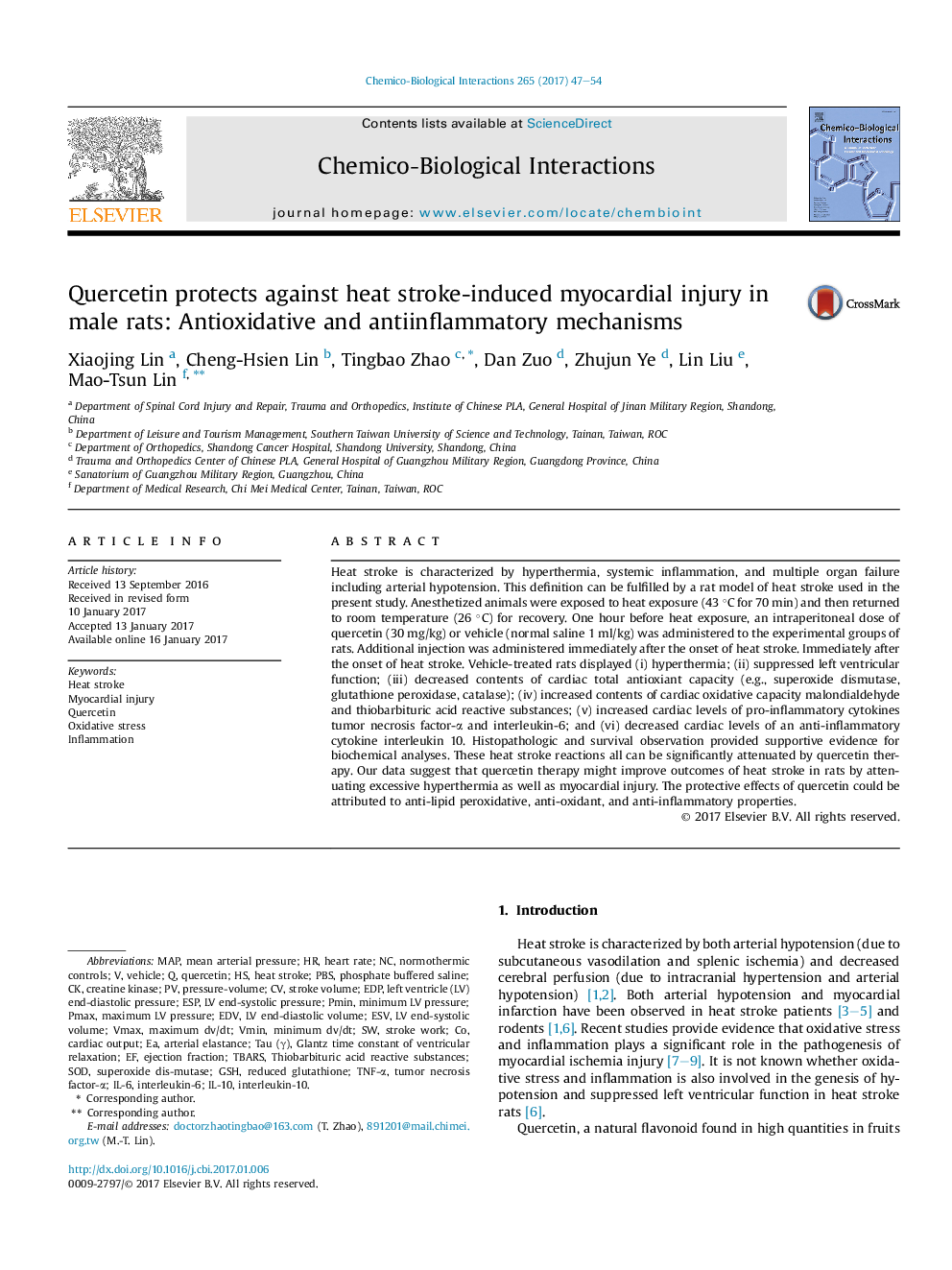| کد مقاله | کد نشریه | سال انتشار | مقاله انگلیسی | نسخه تمام متن |
|---|---|---|---|---|
| 5559613 | 1561577 | 2017 | 8 صفحه PDF | دانلود رایگان |
- Heat stroke male rats displayed hyperthermia, hypotension, and myocardial inflammation and oxidative stress.
- Hypothermia is related to myocardial inflammation and oxidative injury in heat stroke.
- Quercetin protects against heat stroke-induced hyperthermia, hypotension, and myocardial injury.
- Quercetin may exert its protection via anti-oxidant and anti-inflammatory action.
Heat stroke is characterized by hyperthermia, systemic inflammation, and multiple organ failure including arterial hypotension. This definition can be fulfilled by a rat model of heat stroke used in the present study. Anesthetized animals were exposed to heat exposure (43 °C for 70 min) and then returned to room temperature (26 °C) for recovery. One hour before heat exposure, an intraperitoneal dose of quercetin (30 mg/kg) or vehicle (normal saline 1 ml/kg) was administered to the experimental groups of rats. Additional injection was administered immediately after the onset of heat stroke. Immediately after the onset of heat stroke. Vehicle-treated rats displayed (i) hyperthermia; (ii) suppressed left ventricular function; (iii) decreased contents of cardiac total antioxiant capacity (e.g., superoxide dismutase, glutathione peroxidase, catalase); (iv) increased contents of cardiac oxidative capacity malondialdehyde and thiobarbituric acid reactive substances; (v) increased cardiac levels of pro-inflammatory cytokines tumor necrosis factor-α and interleukin-6; and (vi) decreased cardiac levels of an anti-inflammatory cytokine interleukin 10. Histopathologic and survival observation provided supportive evidence for biochemical analyses. These heat stroke reactions all can be significantly attenuated by quercetin therapy. Our data suggest that quercetin therapy might improve outcomes of heat stroke in rats by attenuating excessive hyperthermia as well as myocardial injury. The protective effects of quercetin could be attributed to anti-lipid peroxidative, anti-oxidant, and anti-inflammatory properties.
Journal: Chemico-Biological Interactions - Volume 265, 1 March 2017, Pages 47-54
